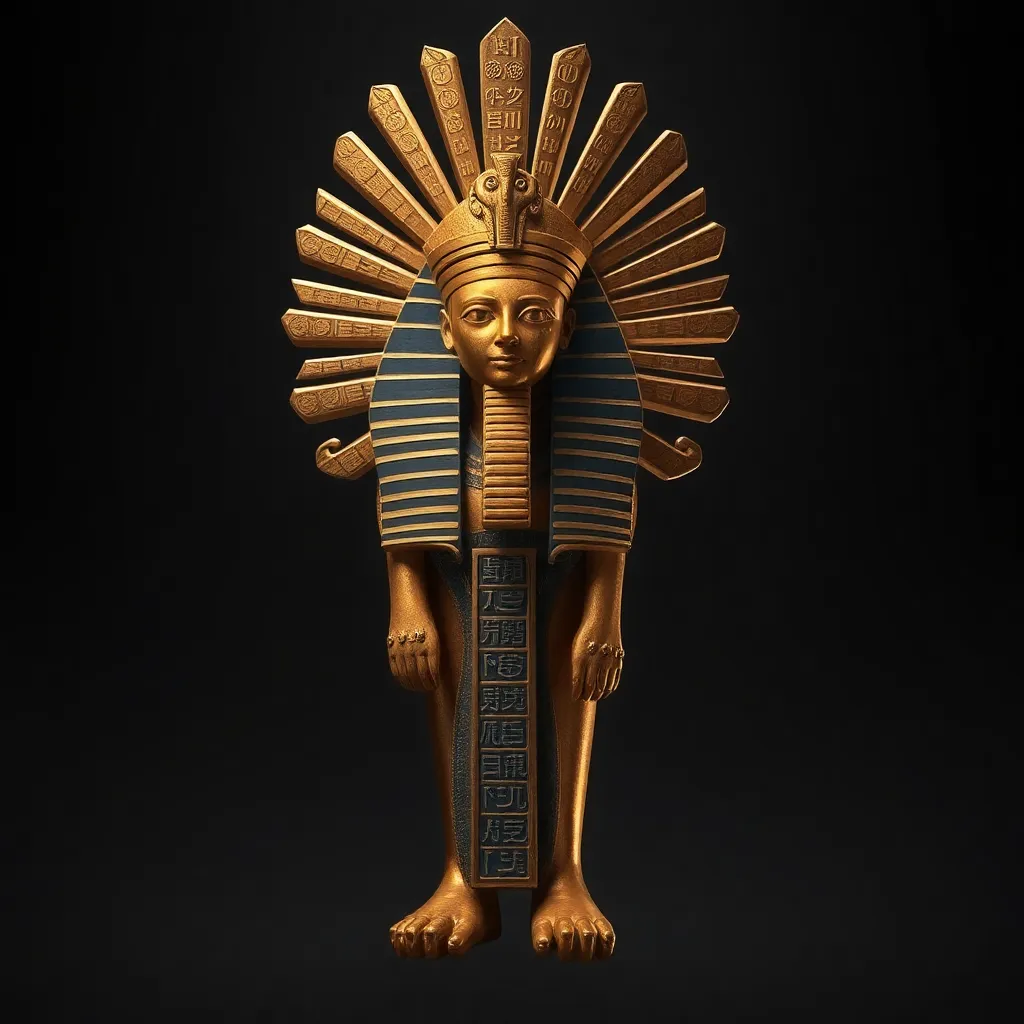The Aten and the Concept of Divine Wisdom in Worship
I. Introduction
The Aten, often depicted as the sun disk, holds a significant place within the pantheon of ancient Egyptian religion. Its worship marks a pivotal shift in the religious landscape of Egypt, particularly during the reign of Pharaoh Akhenaten. This article explores the concept of divine wisdom in the context of Aten worship and its implications for ancient Egyptian society.
Divine wisdom, or Ma’at, represents the moral and cosmic order that governs not only the universe but also the ethical conduct of individuals. Understanding how the Aten embodies this divine wisdom enhances our appreciation of its role in ancient worship practices.
In this article, we will address key questions about the Aten’s significance, the nature of divine wisdom in worship, and the broader implications of these beliefs.
II. Historical Context of the Aten
The Aten rose to prominence during the 14th century BCE, particularly under Pharaoh Akhenaten, who is often credited with establishing one of the first forms of monotheism in history. This marked a drastic transition from the traditional polytheistic beliefs that characterized ancient Egyptian religion.
Akhenaten’s reign saw the Aten elevated to the status of the sole deity, leading to significant cultural and political transformations:
- Relocation of the capital to Akhetaten (modern-day Amarna), dedicated to the Aten.
- Suppression of traditional gods and the power of their priesthoods.
- Promotion of a new artistic style that emphasized naturalism and the divine light of the Aten.
III. The Symbolism of the Aten
The Aten is primarily represented as a sun disk radiating rays that often end in hands, symbolizing the life-giving properties of the sun. This imagery embodies key themes in Aten worship:
- Light and Life: The Aten is seen as the source of all life, illuminating the world and nurturing the earth’s inhabitants.
- Divine Presence: The rays of the Aten are often interpreted as a direct manifestation of divine presence, offering blessings and sustenance.
Furthermore, the connections between the Aten and concepts of divine wisdom are essential to understanding its worship. The Aten represents not just physical light but also the illumination of knowledge and truth, aligning with the principles of Ma’at.
IV. Divine Wisdom in Ancient Egyptian Thought
In ancient Egyptian philosophy, divine wisdom, encapsulated in the concept of Ma’at, is a fundamental principle that reflects the order, truth, and balance of the universe. This wisdom is essential for effective governance, as it guides rulers in maintaining harmony and justice.
The relationship between divine wisdom and governance is evident in the following ways:
- Rulers were seen as the intermediaries between the gods and the people, responsible for upholding Ma’at.
- Decisions made by pharaohs were expected to reflect divine wisdom to ensure societal stability.
In comparing Atenism to traditional Egyptian beliefs, we observe:
- Atenism’s exclusive focus on the sun as a singular source of wisdom contrasts with the pluralistic nature of traditional worship.
- While traditional beliefs celebrated a multitude of gods, Atenism emphasized a singular divine truth, which was both revolutionary and contentious.
V. Worship Practices Associated with the Aten
Worship practices dedicated to the Aten were distinct and innovative. They included:
- Rituals and Ceremonies: Daily offerings and prayers were made to the Aten, often conducted in open-air temples to honor the sun’s presence.
- The Role of the Royal Family: Akhenaten and his family played a central role in Aten worship, often depicted in art as receiving blessings from the Aten.
- Artistic Representations: Inscriptions and reliefs from the period highlight the relationship between the Aten and divine wisdom, showcasing scenes of the royal family in communion with the sun god.
VI. Philosophical Implications of Aten Worship
The theological interpretations of the Aten as a source of wisdom introduced profound philosophical implications. The Aten was not merely a deity but a symbol of universal truth and enlightenment, influencing both religious thought and philosophical discourse in ancient times.
This influence continued, as Atenism laid the groundwork for later philosophical and religious movements that emphasized the importance of divine wisdom:
- Its monotheistic elements foreshadowed later Abrahamic religions.
- Concepts of divine light and truth resonate in various philosophical traditions.
In contemporary spiritual practices, the relevance of divine wisdom remains significant, encouraging individuals to seek enlightenment and moral integrity.
VII. Critiques and Controversies Surrounding Aten Worship
Despite its innovative nature, Aten worship faced significant opposition:
- Traditional Priesthood: The established religious order resisted the shift towards monotheism, fearing the loss of their power and influence.
- Accusations of Heresy: Akhenaten was often criticized for abandoning the traditional pantheon, which led to a controversial legacy.
- Modern Interpretations: Scholars continue to debate the implications of Atenism, with some viewing it as a revolutionary movement and others as a short-lived anomaly.
VIII. Conclusion
In summary, the Aten represents a unique chapter in the narrative of ancient Egyptian religion, embodying the concept of divine wisdom in worship. Its rise and the subsequent focus on monotheism had lasting impacts on Egyptian culture and spirituality.
The worship of the Aten and the pursuit of divine wisdom reflect broader human desires for truth, understanding, and harmony in society. As we reflect on the significance of these ancient beliefs, we recognize their relevance in contemporary religion and social ethics, reminding us of the timeless quest for wisdom and moral clarity.




